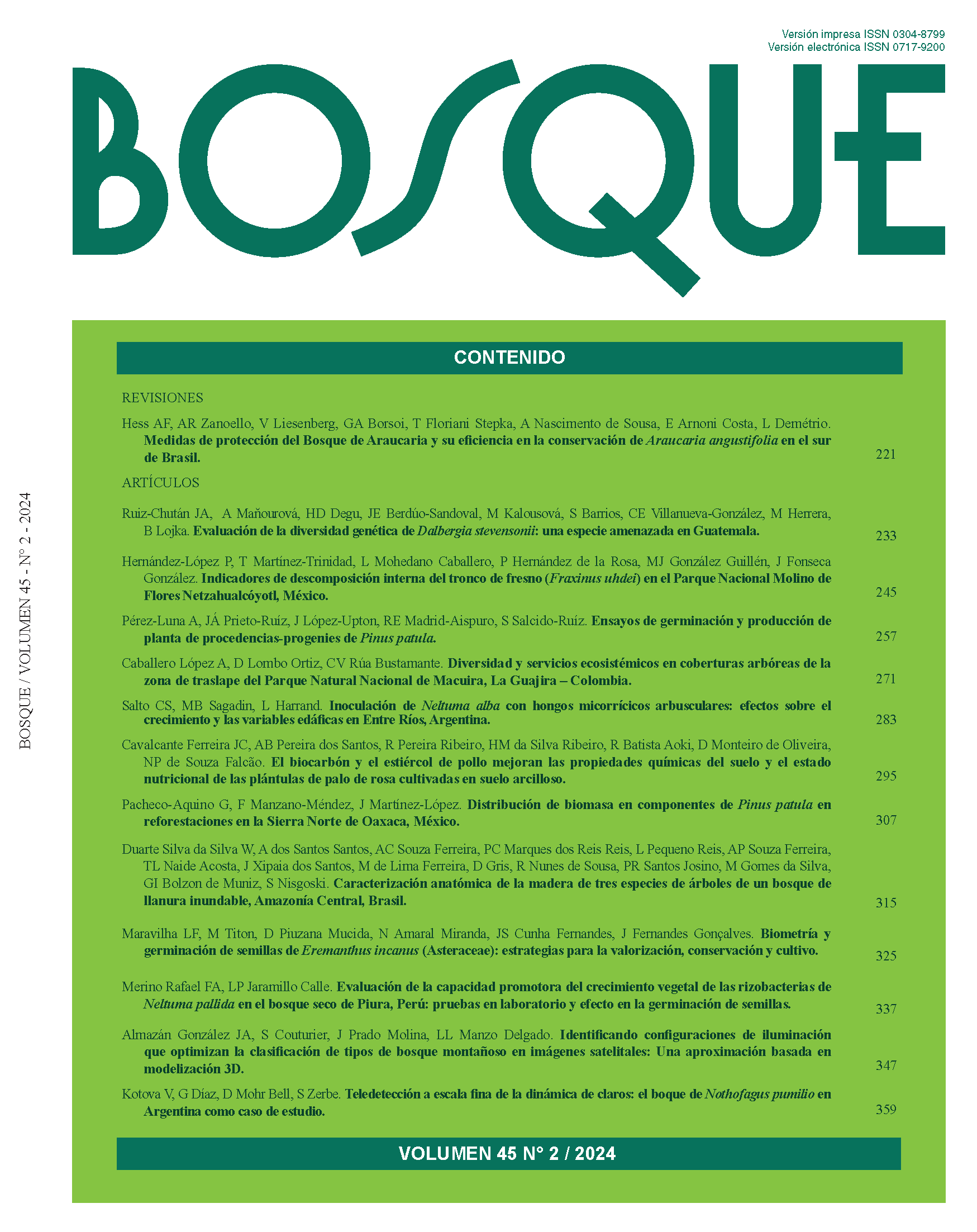Inoculation of Neltuma alba with arbuscular mycorrhizal fungi: effects on growth and edaphic variables in Entre Ríos, Argentina
Main Article Content
Abstract
Neltuma alba (algarrobo blanco) is a commercially valuable native in Argentina that is of interest for the restoration of degraded soils. Incorporation of arbuscular mycorrhizal fungi (AMF) has been suggested to benefit plants during field establishment. The aim of this study was to evaluate the edaphic properties and growth of N. alba plantations inoculated with AMF isolated from the Chaco Region of Argentina six years after field establishment. The treatments consisted of plants inoculated with AMF isolated from two sites: Colonia Benitez (CB, Chaco Province, humid site) and Padre Lozano (PL, Salta Province, semi-arid site). The uninoculated control (TE) group was maintained. Survival, collar diameter, and total plant height were measured. Additionally, composite soil samples were collected per treatment to determine physical, chemical, and biological variables. Regardless of inoculation, the incorporation of trees had positive effects on the evaluated edaphic properties. Soil samples from plants inoculated with CB showed higher values of total biological activity, electrical conductivity, pH, exchangeable calcium, and soil respiration. In contrast, soil samples from plants inoculated with PL showed higher organic matter content. N. alba plants inoculated with AMF from CB exhibited the lowest growth rates under the environmental conditions evaluated.


 https://orcid.org/0000-0003-4943-139X
https://orcid.org/0000-0003-4943-139X